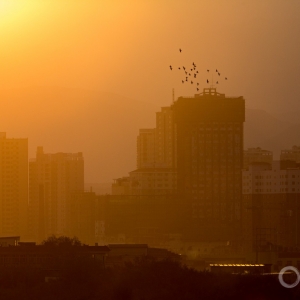The Stream, January 6, 2022: Rain Forecasts Could Boost Brazil’s Electricity Sector
YOUR GLOBAL RUNDOWN
- Officials detect toxic ‘forever chemicals’ in a Wisconsin water well.
- Hawaii upholds an order requiring the Navy to drain fuel tanks which contaminated residents’ water last month.
- New rain forecasts in Brazil could reduce the electricity sector’s need for financial aid.
- Opponents of a West Virginia oil pipeline challenge a water permit in court.
Reeling from the ongoing megadrought, beekeepers in Chile demand more support from the government.
“Bees are dying. There would be no life if the bees die. That’s what we wanted to highlight with this demonstration,” — Jose Iturra, beekeeper. Chilean beekeepers protested in front of the presidential palace in Santiago on Monday, demanding more support from the Chilean government in the face of the ongoing megadrought. The drought, now in its twelfth year, has threatened bee populations and hurt honey production. In protest, beekeepers placed 60 beehives, which were estimated to contain 10,000 bees, around the presidential palace in Santiago. Four protestors were detained, and seven police officers stung by the offending insects.
Wisconsin Water Well Shut Off After ‘Forever Chemicals’ Detected
The town of Rib Mountain, Wisconsin has detected the contaminant PFAS in municipal drinking water wells. The toxic ‘forever chemicals’ were discovered in four wells, exceeding recommended standards in only one. Over fifty sites in Wisconsin are now battling a PFAS contamination. At present, the state has no binding regulations for the contaminants, though such standards could go into place as early as this spring. The chemicals, which are linked to increased risk of some cancers, reproductive issues, and developmental issues in children, are currently unregulated by the federal government.
Today’s Top Water Stories, Told In Numbers
300,000 FAMILIES
On Monday, Hawaii’s Department of Health upheld an order requiring the Navy to drain aging fuel tanks which leaked into residents’ drinking water last month. The leak originated at the Red Hill Bulk Fuel Storage Facility in Honolulu, a World War II-era structure that officials have called a “ticking time bomb” that threatens the area’s water supply. More than 3,000 families are living in alternative housing while the Navy addresses the leak.
17 BILLION REAIS ($3 BILLION)
Improved rain forecasts in Brazil may reduce the electricity sector’s need for government loans. Electricity distributors have faced surging costs in recent years, as dwindling rains kneecap hydroelectric power generation. The Brazilian Association of Electric Energy Distributors said on Tuesday that with more optimistic rainfall projections, financing needs will likely fall short of past estimates of 17 billion reais, or $3 billion.
On the Radar
Opponents of the Mountain Valley Pipeline have filed a legal challenge to one of the project’s key water permits. The environmental and community groups argue that in granting the permit, West Virginia’s environmental agency violated the Clean Water Act. The $6.2 billion pipeline, which is currently under construction, would transport natural gas 300 miles through West Virginia and Virginia.
Laura Gersony covers water policy, infrastructure, and energy for Circle of Blue. She also writes FRESH, Circle of Blue’s biweekly digest of Great Lakes policy news, and HotSpots H2O, a monthly column about the regions and populations most at-risk for water-related hazards and conflict. She is an Environmental Studies and Political Science major at the University of Chicago and an avid Lake Michigan swimmer.







Leave a Reply
Want to join the discussion?Feel free to contribute!